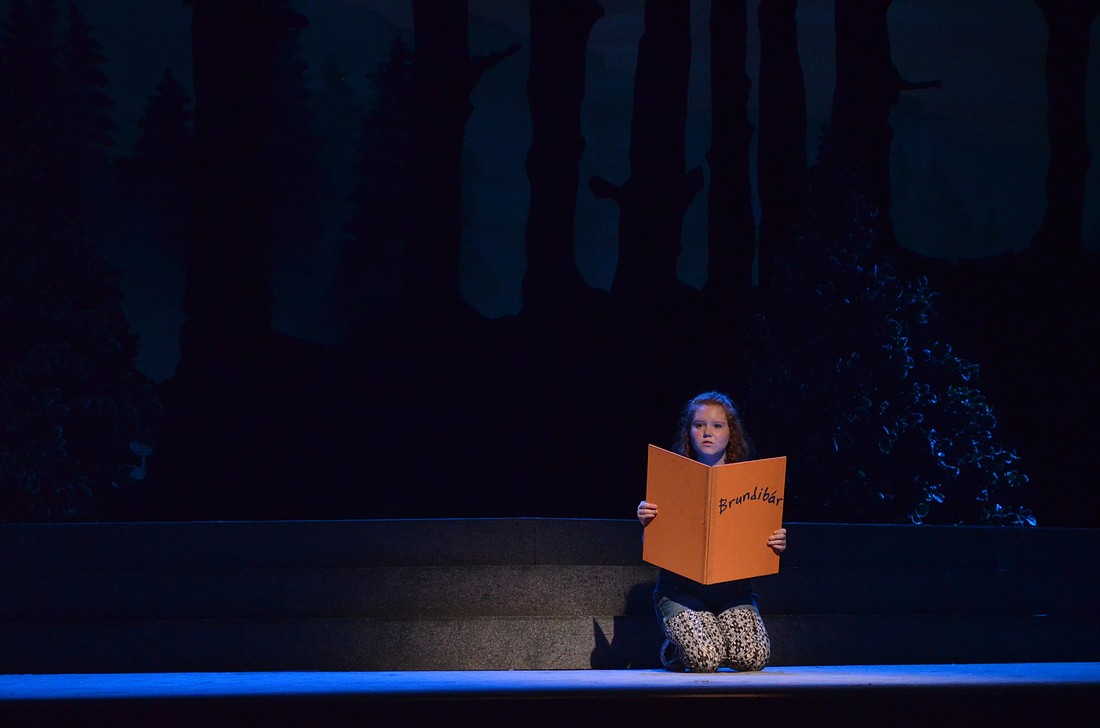- April 4, 2025
-
-
Loading

When 13-year-old Laura Dowden moved from Brazil to Sarasota two years ago, it didn’t take long for the bullying to begin.
As she adjusted to her new life, a group of girls in her fifth-grade class singled her out for being new and consistently excluded her from classroom activities.
“My classmates would say to me during recess, ‘You don’t belong here. You should leave and go away,’” she says.
But all that changed when, one day, Dowden decided to stand up for herself. She confronted the main girl who was bullying her.
“I told her to stop,” she says. “I didn’t want it to happen anymore.”
And it didn’t. In fact, two years later, she and Dowden are close friends, and she’s using the experience for something positive. Dowden, along with other students in the Sarasota Youth Opera, are sharing their experiences in a stand against bullying.
Opening with two performances on Nov. 14, the Sarasota Youth Opera is performing one of the most affecting youth operas in its repertoire: “Brundibár.”
Written in Czechoslovakia in 1938 by composer Hans Krása and librettist Adolf Hoffmeister, the story shows a brother and sister standing up to an evil organ grinder who prevents them from buying milk for their sick mother. The history of this quaint opera would end there, however. Adolf Hitler and Nazi Germany invaded Czechoslovakia in 1939.
The opera’s composer, original crew and cast were all killed in concentration camps.
Organizers and artists of the Sarasota Youth Opera saw bringing back “Brundibár,” which was last performed by the company in 1990, as a way for their students to confront intolerance in their hometown.
“Cyber bullying is such a huge thing
in our generation.
I wanted to share my story to let everyone know and raise awareness.” – Samantha Brown
“When we decided we were going to do ‘Brundibár’ this season, we decided that we needed to do more than just explain the opera’s message to the kids and put it on the back of the program book,” says Jesse Martins, conductor for the Sarasota Youth Opera. “It’s then we started talking about having a prologue.”
The prologue, which will feature all 85 students in the company onstage, will include select students performing monologues of direct quotes from children’s diaries during tragedies like the Holocaust and genocides in Rwanda, Cambodia, Armenia and American slavery. And as the students bring new life into the voices from the past, directors wanted to connect the injustices of the past with the everyday bullying that’s become an all-too-common component of today’s school experience.
“We wanted to show students that we can all do our part in little ways to stop intolerance,” says Martha Collins, stage director of the production.
Joining Dowden onstage to share their experiences with bullying are Samantha Brown and Giffyn Stahlmann. Brown, 15 who attends Bay Shore High School, was plagued throughout middle school by a cyber bully over petty middle school relationship drama. But quickly, the messages became more aggressive, darker and a daily occurrence.
Brown’s bully would never pick on her in person, only through a screen, so she felt helpless. And when “Brundibár” gave her the chance to share her story, Brown wanted to help.
“Cyber bullying is such a huge thing in our generation,” she says. “I wanted to share my story to let everyone know and raise awareness.”
Griffyn Stahlmann, 17, says he just wanted to feel better. Stahlmann has autism, and before he began homeschooling, he says he experienced bullying.
“I first didn’t know why I was being bullied,” he says. “Then I realized it’s because I’m autistic. I got upset back then when I was bullied. For the show, I just wanted to share my story so people can really get to know the real me.”
And as Dowden, Brown and Stahlmann go into final rehearsals, they not only want to encourage other students who see the opera to tell their own stories and stand up for themselves, but they also want to affect the parents in the audience. They want everyone to know that bullying is still an issue. Only seven people in the troupe are sharing their personal stories, but nearly everyone in the 85-member company of students had a story of bullying to share.
“I think adults pay attention when kids call them out on something,” says Griffyn’s younger sister Skyler Stahlmann, 16. “That’s why shows like this have an impact. Because when kids get up onstage and say we notice something is wrong, that’s when adults do something about it.”